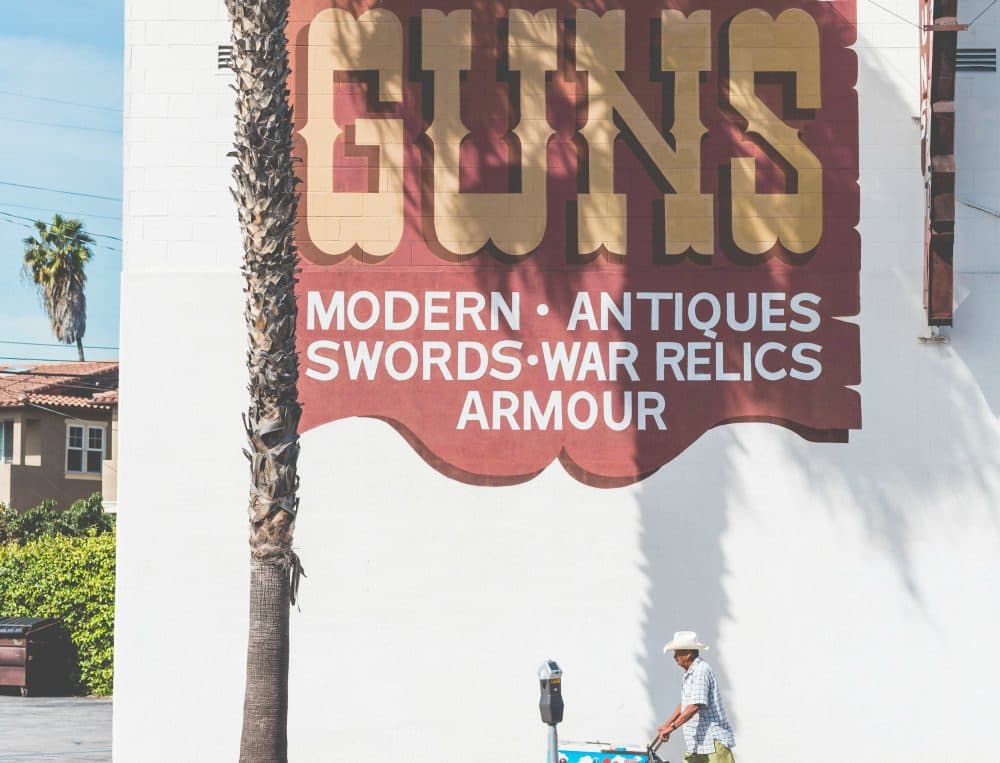Advertisement
Commentary
The Origins Of America's Gun Obsession

When Sacha Baron Cohen aired a gun segment on his new Showtime spectacle, “Who Is America?” — prompting several prominent conservatives to say they support children as young as 4 carrying firearms — the ridicule mixed uneasily with horror at this scheme. Because however bizarre, the “kinderguardian” ruse reveals the extent of America’s gun culture.
That culture is not just a byproduct of the National Rifle Association or other gun enthusiasts. It’s a wellspring from the earliest times of colonial America, nourishing the country’s entire history.
As the cultural historian Richard Slotkin has argued, the American national narrative is the frontier myth. Beginning with the Puritans, “the Myth of the Frontier emphasizes the necessary linkage between two themes as the basis for spiritual and secular regeneration, taking up the ‘free’ or ‘virgin land’ of the wilderness, and defeating the savage natives in a war of races,” he wrote in "Gunfighter Nation," the last volume of his frontier trilogy.
The European-American expansion across the continent was precisely this “errand to the wilderness,” with the genocide of indigenous tribes its grisly métier. Gun violence, particularly by the U.S. Army, was central to this violent expansion. Along the way, the pioneer, the huntsman and the frontier farmer became enshrined in our concept of ourselves, our “exceptionalism.” Daniel Boone was the apotheosis of this legend-making. Theodore Roosevelt and Woodrow Wilson saw the virtues of the frontier — the freedom, rugged individualism and self-governing ethos — as needing constant replenishment, and so they sought to sustain it in overseas ventures.
The frontier myth persists. Hollywood keeps it alive, absurdly exaggerating the gunslinging of the Old West and transposing its solitary-hero trope to Dirty Harry and other avengers in the urban hellscape. John F. Kennedy used the metaphor in his New Frontier, and John McCain and Sarah Palin seized it as “maverick” politicians in 2008. As Susan Faludi persuasively argued, the myth figured prominently in the public discourse of post-9/11 hysteria.
But the most powerful expression of the frontier mentality today is America’s gun culture. Like the frontier days, guns are protectors against the “savage” — not Apache or Sioux, but Mexicans, blacks, Muslims. The rhetoric of Trump — but cultivated by right-wing media for many years — dehumanizes these groups much as the indigenous were degraded as subhuman in the 300-year march west. The president often speaks of infestations of rapists, violent gangs and drug mules across the southern border.
This kind of language reflects the attitudes of racism that reinforce and possibly drive gun ownership. “What I see is a population that is living in fear,” Deb Azrael, a Harvard researcher on gun violence, observed. “They are buying handguns to protect themselves against bad guys, they store their guns ready-to-use because of bad guys, and they believe that their guns make them safer.”
Advertisement
Indeed, according to a 2013 Pew survey, the main reason for owning guns today is self-protection. Gun ownership and gun violence are more prevalent in the West, the last frontier, and the South, where violent control of slaves was paramount in early gun culture (and, for some, the reason for the Second Amendment).
It can be a dark vision. “Behind the surface of America’s ‘gun culture’ exists a grim and simple truth: There is no protector; there is no guardian; there is no defender except oneself,” intones the right-wing website, The Federalist. But America’s core value of liberty figures prominently, too: 75 percent of gun owners say gun ownership enhances their sense of freedom.
Protection against savages and love of freedom were ennobled on the frontier by the blessings of Christ, and that sanctifying remains vivid in today’s gun culture. The NRA’s Wayne LaPierre even claimed after the Parkland, Florida school shooting that the right to keep and bear arms “is not bestowed by man, but granted by God to all Americans as our American birthright.”
Altogether, these sentiments perfectly reproduce the frontier myth: The gun and gun ownership are held to be expressions of personal freedom, a defense against tyranny and savages and a font of social and political empowerment.
The frontier and the gun are deeply encoded in the nation’s DNA. Those seeking more restrictive access to guns (which in fact large majorities of Americans support) must reckon with this powerful cultural history. Telling a different story of the gun in America would be one place to start.

